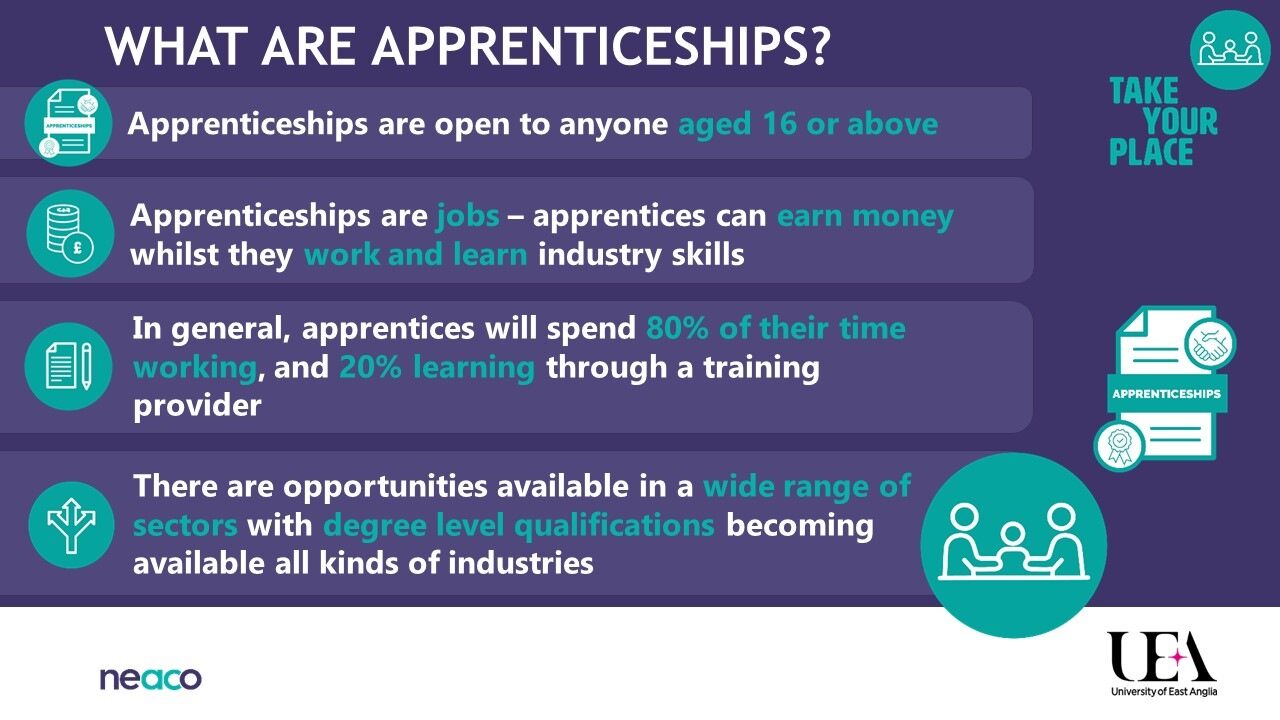As a parent or carer, you have an important role to play in supporting your young person in their learning, education, and decision-making. All these options and choices can feel overwhelming for young people; they may feel that getting them right or wrong will define their future.
Here we break down the important moments of your young person’s education between Year 12 and 13, or Level 3 Year 1 and 2. We offer information and guidance on how you can help them make the most of each opportunity and pick a pathway that feels right for them.
The ‘Low Down’ parents and carer guide to Higher Education
The ‘Low Down’ in a handy guide to help your understand and explore all the options available to your young person after their GCSEs and beyond.

Why University?
After your young person’s Level 3 courses, such as A-Levels, BTECs or T-Levels, they have the opportunity to progress to a higher level of education. Higher Education is not compulsory, but it enables them to continue to grow their knowledge and expand their future opportunities.
When thinking about higher education most people will picture going to university and are motivated to go for a variety of reasons, such as gaining a degree, studying a subject they are passionate about, and widening their career choices. It’s possible to study for a degree either full-time or part-time.
University can be a great opportunity for self-discovery; to develop knowledge, make friends, have new experiences, live independently, and gain important life and work skills. It’s an opportunity to better explore and understand passions and interests and develop specialisms and expertise.
How you can support with UCAS applications and Student Finance
As a parent or carer, it's important to know about how the application process and finance system at university works. Once you know the facts and have the right guidance, you can support your young person to understand their options and, together, plan and prepare for the costs of university.
Student Finance can be a worry for students, however, the important key message for your young person is that money shouldn't be a barrier for anyone wanting to go to university. There are plenty of repayable and non-repayable funding options to support them on the next step of their education.
Get to grips with UCAS applications and Student Finance by visiting our our parent and carer page which outlines the key facts and how you can support as a parent or carer.
Parents and Carers: UCAS applications and Student Finance webpage.
FAQs: My young person has submitted a UCAS application. What happens next?
After your young person has submitted their UCAS and Student Finance application, there are a series of next steps to ensure universities have the information they need, and students feel prepared to continue the journey. As a parent or carer, you can support them to keep on top of tasks and deadlines and ensure they’re getting the information they need to make their final decisions.
After your young person has submitted their application via UCAS, each of the universities will make them an offer in one of a few ways.
The first thing to note is that all offers will be sent to your young person, so it’s important to check with them regularly to see if anything has changed on their UCAS Hub or if they’ve received any emails.
They will receive one of the following offers from the universities they have applied to:
An invitation to interview:
As part of the application process, the university would like to interview your young person before they make them an offer.
A conditional offer:
A place offered at the university as long as they get specific grades. This is the most likely offer your young person will receive.
An unconditional offer:
A place offered at the university whatever grades they get.
Unsuccessful:
The university hasn’t offered your young person a place. Universities will often supply a reason for an unsuccessful application. If they don’t, your young person can contact them to ask for a response. If your young person doesn’t receive any offers, or are unhappy with the offers they do receive, don’t worry – they can add other options to their UCAS application through UCAS Extra which opens in February.
Universities have until May to make offers to prospective students, after which your young person will then need to narrow down their choices to two options; their firm and insurance choice.
Once your young person has received their offers from universities, they will need to make their next big decision; narrow down their options to their top two choices. They will need to do this on their UCAS Hub.
Firm choice – is essentially their top choice.
Insurance choice – is their second choice, or back up option if they don’t get on to their firm choice course.
Once they have selected their firm and insurance option, any other offers are declined.
They will need to make this decision around early June, which is before Results Day. Encourage them to consider how this will affect their choices, and if they want to pick an insurance choice they can still get into if they don’t get the grades they were hoping for.
Universities will have a huge task ahead planning to welcome new students, which includes allocating student accommodation. Encourage your young person to keep an eye on their emails for messages about accommodation options. They will need to make their accommodation choices before they have a confirmed place at university.
Check out Parent & Carer Ambassador, Rachel, providing her top tips for Results Day and Clearing.
Clearing is another chance for young people to go to university if things haven’t gone to plan on Results Day. It’s also a chance for young people who have exceeded their predicted grades to change their minds and find other courses and universities.
For universities, Clearing is a chance to fill places on courses. This makes Clearing a great ‘Plan B’ for young people, however, be aware that universities take thousands of calls during Clearing and places on popular courses can fill very quickly! That’s why researching Clearing options from when they open in July can help take the pressure off on the day.
Universities open Clearing phone lines, and online chat channels, on Results Day. Many university websites will list what courses are available during Clearing, and each university will have its own dedicated Clearing phone line.
Universities prefer to speak directly to the students themselves, so do offer to support your young person, but give them the opportunity to take ownership for their next steps.
Once they have these new offers, your young person will need to release themselves into Clearing through their UCAS Hub. Their UCAS account will give them a step-by-step process on how to do this, and UCAS have a dedicated Clearing page for more information.
A-Level Results Day falls each year around mid-August. Results for other Level 3 qualifications, such as BTECs and T Levels, might fall on a different day. Check in with your young person’s school or college for the exact date and pop it on the calendar.
Results Day can be a stressful time for any student. If they get the grades they’d hoped for, then there’s a chance for celebration! If things don’t go to plan, they might feel like their future is on hold. However, it isn’t the end of the world - there are other options, such as Clearing, for your young person to get back on track. They might decide they want to take some time out to clear their head before making any future decisions.
Sharn is a parent who has been through Results Days with two of her young people and shares her experience and top tips to support other parents and carers.
- Be familiar with the five choices your young person has made and why they were chosen – this can help when it comes to supporting your young person to select their firm and insurance choices.
- Be interested and ask how things are going on a regular basis - but try not to interfere.
- Do the research and be prepared to support your young person as their offers come through.
- Create space for them to clear their head before they need to make any decisions.
- Encourage them to have a ‘Plan B’ - this is a backup plan ready for Results Day in case things don’t go the way they hoped. Help them make this plan. Our Student Survival kit has lots of useful information.
- If possible, be around on Results Day to support them, whether that’s driving them to the school, being on the phone, or taking them out to celebrate or consider their options.

Why apprenticeships?
Did you know an apprenticeship can lead to a degree? University is not the only higher education option for young people after they finish school or college.
Higher and degree apprenticeships are work-based pathways, as they combine work with study at a higher level. The apprentice gains hands-on experience and qualifications while getting paid. One of the benefits of this pathway is that there are no university fees – these are co-funded by the government and employer.

What are apprenticeships?
The world of apprenticeships is changing all the time, and, as there are less opportunities than university courses, higher and degree apprenticeships can be extremely competitive. However, your young person can apply for both apprenticeships and university, giving them the opportunity to keep their options open and widen the scope of their future.
Check out our Parent & Carer Apprenticeships page to find out more.
Wellbeing
The final years of your young person’s education can involve tough decisions, stressful times, and big changes, which can impact their wellbeing and mental health. Whilst going into higher education is an exciting time for young people, there are undoubtedly challenges that they may have to face from time to time. For many students, it will be their first time living away from home, being independent, managing finances, and finding their way in a new place. Here are some of our top tips for supporting your young person’s wellbeing as they make those big decisions and embark on their next steps:






